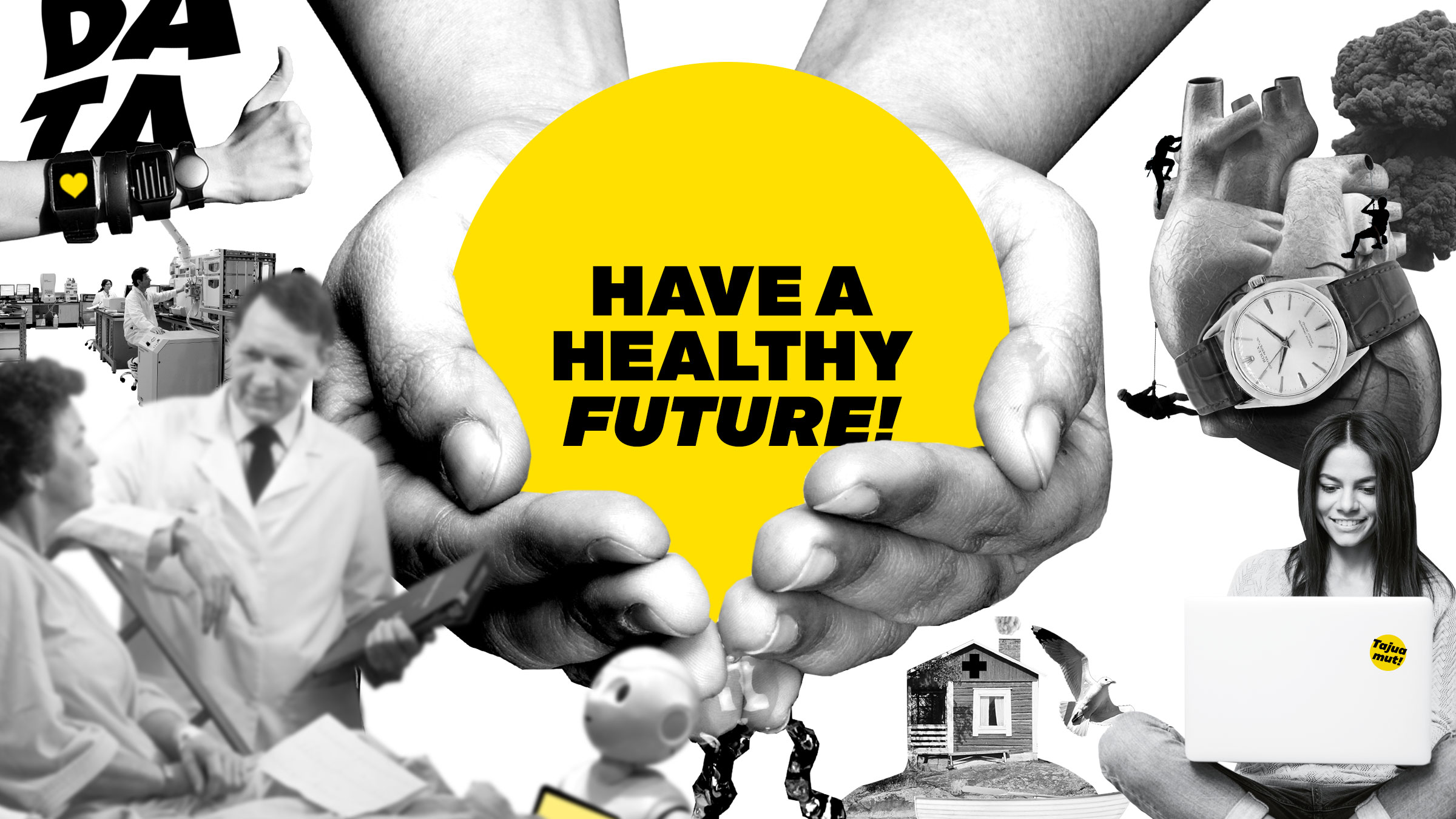Gene technology and other new inventions offer everyone more and more tools for taking care of their own health. These tools can improve our lives in many ways – but before that, we have a lot to learn as individuals and communities.
The digital transformation and development of technology have made such huge strides during the past decade that the discussion on the ethics and rules of preventive healthcare is being left a long way behind.
To address this, we are suggesting five ethics-based theses for preventive healthcare.
1. The only ethical solution is to adopt preventive healthcare and preventive social services as extensively as possible.
Social and health services are a major expense for society. However, it is a justifiable expense; after all, the purpose is to maintain people’s functional capacity and well-being.
Yet it is often the case in social and health services that treating an emerging problem is a lot more expensive than preventing it in advance. It would be cheaper for society to support families when their children are young than to care for someone who has been derailed because of family issues from the teenage years until the grave.
Similarly, the cost of tackling the underlying problems causing someone to contract Type 2 diabetes is a lot lower than treating them once the disease has been allowed to cause complications, thereby requiring far larger sums for what can be complicated treatment.
The cost-effectiveness of prevention is therefore often much better than the cost-effectiveness of treatment. Initially, the costs may increase, but savings are achieved over the long term.
“It is problematic if new, exciting solutions that are perhaps a little hyped-up draw too much resources.”
And it is not only about money, but also, and above all, about the well-being of people. If the onset of Type 2 diabetes can be prevented by changing one’s diet and other lifestyle changes, for example, this is a far better option from the point of view of one’s well-being than treatment to prevent the condition getting worse.
Therefore, it would not be sustainable for society and individuals not to make use of genetic information and other new technology to promote health and well-being.
However, it should be remembered that the individual’s will must always be respected. People must be actively offered the opportunity to accept preventive intervention, but they must also be allowed to determine for themselves whether they want it. Currently, this option is lacking altogether.
“Tools that use genome data, such as the Cardio Compass developed by Sitra, are already useful in healthcare as well.”
It is problematic if new, exciting solutions that are perhaps a little hyped-up draw too much resources and attention from old, proven preventive methods, such as effective school healthcare, regular dental examinations or valuable lifestyle coaching. Even familiar methods need further development.
Tools that use genome data, such as the Cardio Compass developed by Sitra, are already useful in healthcare as well. The Cardio Compass is already in use in Estonia.
However, some of the genetic tests available online, for example, are still more about entertainment than worthy lifestyle information. Thus, Sitra and its partners have also implemented projects such as Terva, a project to support the self-care of people affected by some of Finland’s most common chronic health conditions.
A key lesson from Terva has been that the actual impacts of the project are often only seen years later, so the follow-up period must be long enough. Furthermore, one should aim to better understand the factors which actually get people to change their behaviour.
2. Preventive healthcare requires new skills and a new attitude from individuals and healthcare professionals.
When talking about a person who uses their own genetic information or biohacking to promote their well-being, we often think about some sort of “perfect individual”: it is easy for them to obtain information and assess its reliability, they can focus on the essentials and they make decisions based specifically on facts.
However, perfect individuals are few and far between. People are fundamentally emotional beings and not very well guided by knowledge. You know it: if knowledge-based education resulted in weight loss, not many Finns would be overweight.
Underlying lifestyle choices is a myriad of motives and resources – and according to research, lifestyle choices are largely questions of resources.
Someone who is already feeling well and believes in their own ability to control their eating, for example, finds it far easier to make healthy choices than someone who has to strive daily to find something for their family to eat, or someone whose body image has been badly distorted a long time ago.
“People are fundamentally emotional beings and not very well guided by knowledge.”
Knowledge gained by an individual does not automatically increase their resources, and therefore the benefits of preventive healthcare can easily go to those who are already feeling well as it is. Therefore, the efficient use of preventive healthcare will probably require new kinds of experts –holistic well-being coaches who support the rest of us in obtaining and using health-related information, as well as understanding our own motives and solving our problems.
In the best-case scenario, preventive healthcare will empower the majority to take even better care of their own well-being.
3. Preventive healthcare requires reforming the system.
Increasing the individual’s power and responsibility is a positive thing in general. It is known that people’s well-being is promoted by the ability to influence one’s own life.
However, emphasising the individual often completely hides the fact that our lives are also affected by many other things besides our own free choice.
The society and culture around us, or circumstances in general, do not usually directly dictate anything, but they have significant impacts on the probability with which each one of us ends up with specific choices.
Therefore, health and well-being are societal issues as well.
Smoking is a good example of this. It is heavily taxed. Society has considered it best for tobacco not to be visibly on display in Finnish shops and for smoking to be prohibited almost everywhere.
“Not every choice has to be super healthy.”
These measures – and, of course, also education and developing the treatment and support for giving up smoking – have succeeded in dramatically reducing smoking in Finland. Even though giving up smoking or not beginning to smoke is always up to the individual, the structures of society support not smoking in many ways.
Therefore, a society that supports choices that are good for one’s health and makes it difficult to make poor choices should be included as an essential part of preventive healthcare. “Health fascism” should, however, be avoided, as good health and holistic well-being also involve flexibility. Not every choice has to be super healthy.
In addition to society having to change to support well-being more strongly, the professionals working in social and health services must increasingly evolve into coaches.
People already have the chance to obtain diverse general and even personal health information – and often it is difficult to know how reliable the information is and how it should be used, let alone how to make major lifestyle changes. That is why services that support people in these questions are needed.
4. Preventive healthcare requires a new kind of ethical consideration.
You are 32, and life is grand. You have work and love aplenty, and you like to spend long evenings over good food and drinks with friends. You have gradually begun to gain weight, and you know well that your alcohol consumption is at the risk limits. Yet you are happy.
Then you find out that because of your genome, you are at a very high risk of getting Type 2 diabetes. Well, we all encounter risks. You add a little physical exercise to your life but otherwise keep on going the same way as before.
“Suddenly, you are 48 and you are beginning to be severely and continuously tired. You go to the doctor – and are diagnosed with Type 2 diabetes.”
Why? Why didn’t you live another way? Why didn’t you make healthier choices even though you knew that this might happen? Why should the rest of us pay for your reckless life?The first questions can be answered simply: because you are a human being. As stated above, a person’s choices are influenced by many factors, and they only rarely act based on knowledge and reason.
In addition, even high risk is but a risk, or probability, the realisation of which is influenced by several factors. Therefore, your brother who has lived in a similar manner may avoid diabetes because of one difference that seems quite trivial.
But then there is the question of why the rest of us should pay for your care – after all, you knew.
Now, you should keep calm and remember what was said above. Different people have different physiological, mental, social and economic resources for taking care of their well-being. If obligations are imposed on the individual, society should aim to even out these differences by supporting good health choices and making poor ones difficult.
When we make decisions on what should be the responsibility of society and what should be down to the individual, we should base our decision on an open ethical discussion, facts and a comprehensive concept of the human being.
Vaccines could serve as another example. Isn’t it up to you to decide whether your child is vaccinated against measles? What if your decision impairs the herd immunity, which is central to the protection provided by vaccines, and many fall people ill because of that? Who has the power and responsibility, the society or the individual?
We should prepare for such discussions in the era of increasing information and strengthening individualism.
5. We must make our values more visible to ourselves and others.
Preventive healthcare requires a new kind of ethical discussion from us. Therefore, we must make it clear to ourselves and others what kind of value base guides us.
Society must reach consensus regarding the values on which we base decisions on the allocation of resources, for example.
“Whose diabetes is worth treating and whose isn’t?”
Is health, for example, automatically the most important value? Is it OK to make the choice of not investing in one’s health? What if, say, individual freedom is a value more important than health? Whose diabetes is worth treating and whose isn’t?
In the end, the questions raised by preventive social and health services are the fundamental questions of humanity. What is a good society like? What is a good life like? What is fair?
Tuula Tiihonen, Project Director at Sitra and Johanna Ahola-Launonen, Researcher at Aalto University were interviewed for the article.








Read more